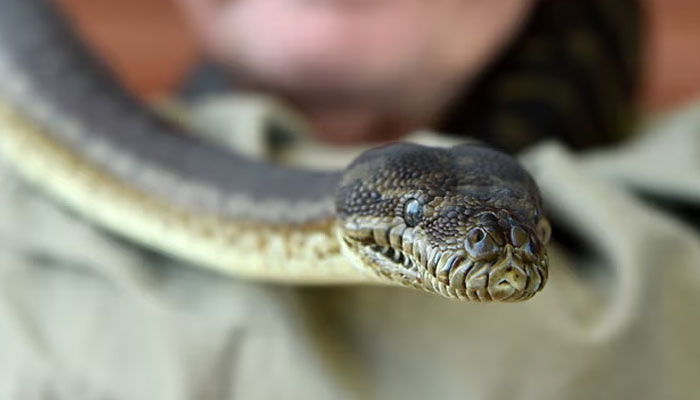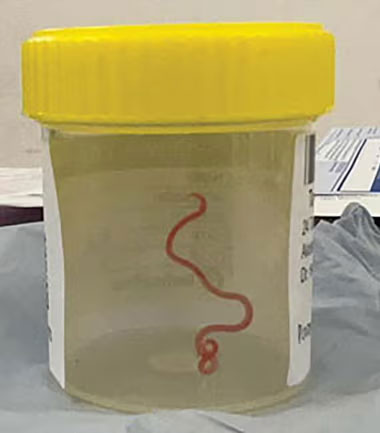Live snake roundworm found inside woman's brain, doctors shocked
Dr Hari Priya Bandi exclaimed, 'Oh my god, you wouldn’t believe what I just found in this lady’s brain – and it’s alive and wriggling'
Medical history witnessed an unprecedented incident at Canberra Hospital where doctors uncovered a live snake roundworm inside a woman's brain.
The remarkable incident has left the medical community baffled and highlights the potential risks of unusual parasitic infections.
The patient, a 64-year-old woman hailing from south-eastern New South Wales, initially sought medical attention due to a series of troubling symptoms including abdominal pain, fever, night sweats, and neurological abnormalities. However, what doctors discovered during her treatment was beyond anyone's expectations.
Dr Hari Priya Bandi, a neurosurgeon at the hospital, was in the midst of a routine procedure when she made an extraordinary finding. "Oh my god, you wouldn’t believe what I just found in this lady’s brain – and it’s alive and wriggling," she exclaimed. She immediately called her medical colleagues for advice.
The live parasite, measuring an astonishing eight centimeters, turned out to be an Ophidascaris robertsi roundworm, typically found in pythons. This finding marks the world's first known case of this snake roundworm species being discovered within a human brain. Surgeons were shocked while pulling the worm from patient's brain.
Dr Sanjaya Senanayake, a distinguished infectious diseases physician, remarked, "Neurosurgeons regularly deal with infections in the brain, but this was a once-in-a-career finding. No one was expecting to find that." The discovery prompted an urgent collaboration among medical professionals to determine the appropriate course of action.
A team effort ensued, involving not only the hospital staff but also experts from outside the facility. The parasitic roundworm was sent to a specialist with extensive experience in parasites, who identified it as Ophidascaris robertsi. This species is usually found in pythons, which brought about the intriguing question of how it ended up in a human brain.
The woman lived in proximity to an area inhabited by carpet pythons, which led researchers to a hypothesis. Despite no direct contact with snakes, the patient often collected native grasses from the surroundings for culinary use. It is believed that a python's feces might have carried the parasite into the grass, which she then inadvertently incorporated into her food or kitchen utensils.
The patient's courageous journey didn't end with the parasite's removal. "You don't want to be the first patient in the world with a roundworm found in pythons, and we really take our hats off to her. She's been wonderful," Dr Senanayake expressed. The patient's recovery is progressing well, and ongoing monitoring is being conducted.
-
Martha Stewart on surviving rigorous times amid upcoming memoir release
-
18-month old on life-saving medication returned to ICE detention
-
Cardi B says THIS about Bad Bunny's Grammy statement
-
Chicago child, 8, dead after 'months of abuse, starvation', two arrested
-
Funeral home owner sentenced to 40 years for selling corpses, faking ashes
-
Australia’s Liberal-National coalition reunites after brief split over hate laws
-
Savannah Guthrie addresses ransom demands made by her mother Nancy's kidnappers
-
Washington Post CEO William Lewis resigns after sweeping layoffs













